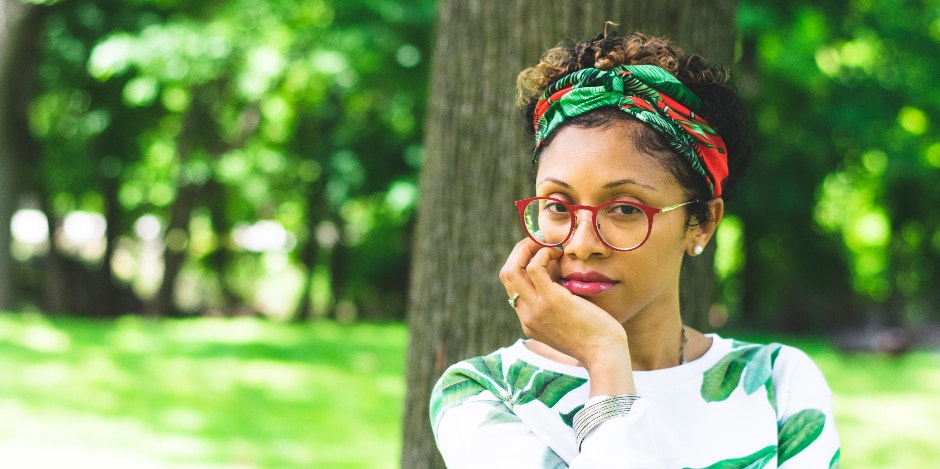5 Expert Tips On Managing Coronavirus Anxiety For Highly Sensitive People
Here's how to keep calm when you're extra sensitive.
 by malcolm garret from Pexels
by malcolm garret from Pexels When you're a highly sensitive person, it's easy to get completely overwhelmed by the anxiety and stress of what's going on during the COVID-19 coronavirus pandemic.
Being put into isolation during quarantine or practicing social distancing can be equally hard. You're likely worried or even scared and picking up on all the fear around you from those you love as news of the virus continues to spread.
Worrying about coronavirus is natural, and the highly sensitive person may take it especially hard, but you can stay balanced.
It's important to keep your mental health safe during these times.
There are some things you can do to be intentional in your day to keep your stress levels down, too. Write down a schedule for yourself or set alerts on your phone to create rituals that give structure to your day, for example.
Here are 5 tips for how to keep stress and anxiety from overwhelming highly sensitive people during the coronavirus pandemic.
1. Limit the news.
You feel things deeply and resonate with others’ pain.
Get alerts from the government and your doctor, but avoid becoming overwhelmed and fatigued by empathy by scheduling your news intake.
Three 30-minute periods of news television or social media — morning, afternoon, and evening — will keep you up to date.
If insomnia is a problem right now, step away from your screens at least an hour before bedtime.
2. Keep your surroundings harmonious.
Home is usually a refuge for the highly sensitive person. But right now, chances are it’s either a workplace, your kids’ school, or both.
Set aside a room, or even just a corner, for yourself — no mess allowed. At the end of each day, put things away. If you have kids at home, enlist their help to clean each day.
3. You still need “me time.”
If your partner is working from home, sit down and negotiate how you’ll manage chores during this period of change and how you’ll create time for togetherness as well as solitude.
If you’re alone, create large and small daily rituals that give you a feeling of accomplishment. Clip the brown leaves off your houseplants, check in with friends, or commit to a craft or creative project.
4. Indulge your senses.
Light a scented candle, listen to music, watch a live-stream performance, bake your favorite cookies, arrange cut flowers, or slather on essential oils.
You have limited ability to change the big picture right now, but small comforts help.
5. Nourish your soul in the community.
Houses of worship, meditation centers, and yoga studios are closed, but many are offering opportunities for connection and community right now online.
Psychotherapists have moved their sessions to video, too.
Choose a practice that will work for you: Join a journaling group, offer to pick up groceries for an elderly neighbor, or listen into a spiritual podcast that speaks your language.
As you read this list, and consider how it may spark your own self-care ideas, sit down and create a program for yourself.
Having a plan gives you a sense of control and shape to the day you can rely on during these stressful weeks.
Jean Fitzpatrick is a marriage counselor and psychotherapist who specializes in marital issues. For more information about how she can help you, visit her website here.

